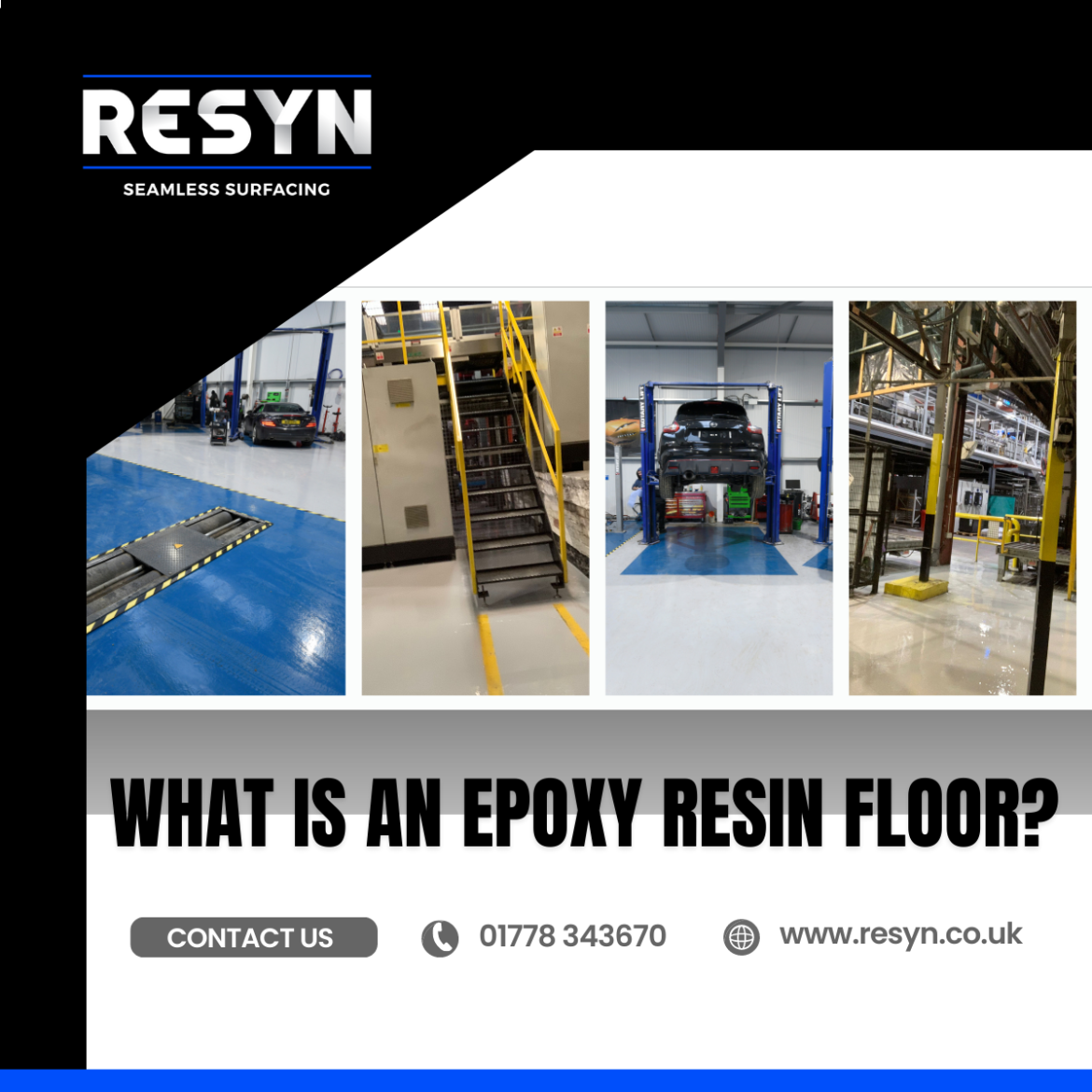Epoxy flooring is probably the most well-known of the resin systems and is widely distributed within industrial settings.
An epoxy floor is a protective flooring surface that is made up of various layers of epoxy resin. Epoxy floors are available in a variety of forms. It is a thermosetting resin which means the system irreversibly cures once hardened.
An epoxy floor is usually 2mm or greater in depth. Typically, anything less than 2mm in depth is referred to as an epoxy coating.
Types of Resin Epoxy Floor
There are four main types of epoxy flooring available:
Epoxy Floor Coating
Less than 2mm in depth an epoxy floor coating, also known as a 2-pack epoxy paint, is commonly found in industrial settings to provide an easy to clean, protective coating over the substrate.
Epoxy Mortar Floors
These consist of a mixture of epoxy resin and sand. These are used to repair damaged substrates and are suitable for areas that require higher levels of resistance to chemical attack or impact damage.
Self-levelling Epoxy Floors
As suggested by its name, self-levelling epoxy floors are smooth systems that are typically 2mm – 4mm in depth. These can be enhanced by adding a flake finish to the top to create a decorative appearance.
Quartz-filled Epoxy Floors
This type mixes a combination of epoxy resin and quartz and is usually trowel applied. The quartz can also broadcast on to the surface to enhance the slip-resistant properties of the system.
Advantages of Epoxy Flooring
There are a variety of advantages to using resin epoxy flooring, these include:
- Hardwearing surface
- Good chemical resistance
- Seamless and easy to maintain
- High gloss finish
- Quick and easy to install
- Low odour
- Cost-effective
Disadvantages of Epoxy Flooring
Equally, however, there are also some disadvantages to using resin epoxy flooring including:
- Longest curing period out of the resin flooring types (7 days full chemical cure)
- Curing period is affected by the room temperature.
- Will not cure below 5°C
- To maintain a high gloss finish, maintenance is required.
- Many systems are multiple layers so small areas can take a long time to install
- Only heat tolerant to 60˚
- Due to slower curing, multi-layer systems can be difficult and time-consuming to repair
If you like this, please take a look at our other guides about ‘what is a resin floor‘ including…
For further information or to discuss a project, please contact us on 01778 343670 or use our contact us form or take a look at our case studies to see examples or our YouTube channel.

